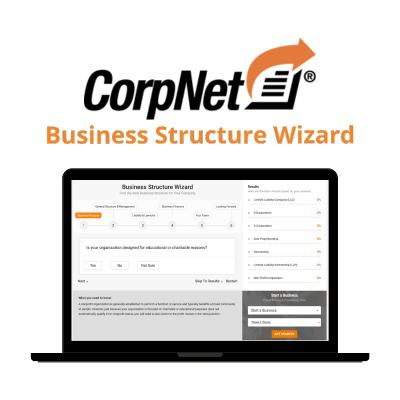A lot of entrepreneurs have decided to start a business in West Virginia and there is good reason. It is centrally located and within an eight-hour drive from major metropolitan areas and it offers some of the country’s lowest labor and utility costs. Known as the “Mountain State,” West Virginia’s dependence on its mineral resources has declined in recent years, and it now boasts numerous industries, including aerospace, manufacturing, information technology, and energy production. Plus, its central location makes fulfillment distribution a thriving industry in the state.
If you’ve been thinking about starting a business in West Virginia, here is a comprehensive look at what business owners should know and address to get their new business up and running.
Fine-Tune Your Business Idea
Before spending time and money starting a business in West Virginia, entrepreneurs need to do their due diligence to see if their business concept has the potential to succeed. A feasibility study can help you reach an informed “go” or “no go” decision. Also, consider bouncing your idea by trusted advisors like SCORE mentors, business consultants, accountants, and attorneys who can help you identify red flags.
Write a Business Plan
With so many moving parts in starting a business in West Virginia, writing a business plan helps you focus on your business objectives and the strategies for achieving them. A business plan is a document that outlines and defines your goals and describes the efforts you will make to achieve them. Some business plans need to be in-depth and detailed, while others can be short and sweet. The complexity depends on the type of business you’re starting. If you plan to appeal to outside financial sources and get funded, you need a formal business plan. Typically, a business plan contains the following sections:
- Executive Summary
- Company Overview
- Products and Services Descriptions
- Market Analysis
- Competitive Analysis
- Sales and Marketing Plan
- Management and Operations Description
- Financial Projections
You can find business plan templates online to use as a starting point for creating your own plan.
Create a Name Your Business
Besides choosing a business name that works well for marketing and branding purposes, ensuring the desired name is available in West Virginia is vital. To find out if any other West Virginia companies are using a business name, you can use CorpNet’s free Corporate Name Search tool. Your business name is protected when you register an LLC or corporation in West Virginia, so other similar businesses can’t use the same name. Registering for a state trademark can offer additional peace of mind. When forming a legal business entity, a company must comply with the entity-specific name requirements (e.g., a Limited Liability Company must use an acceptable form of “LLC” behind it).
Sole Proprietorships and General Partnerships do not have to register their companies. Still, if they use a name that doesn’t include the legal names of the business owners, they must file a Registration for Application of Trade Name.
Registering a business in a state only protects the company’s name within that state. So entrepreneurs who want to expand their businesses to other states or ensure their companies’ names are protected in all 50 states should conduct a trademark search, which helps identify if the desired name is available throughout the U.S. And if your trademark application is granted, it ensures similar businesses cannot use the name anywhere in the country.
Choose a Business Entity Type
Several business structure types are available in West Virginia: Sole Proprietorships, General Partnerships, For-Profit Corporations, Nonprofit Corporations, Limited Liability Companies, Limited Partnerships, and Professional Limited Liability Partnerships. West Virginia also allows the formation of Benefit Corporations, which combines the benefits of a for-profit and nonprofit corporation and Professional Corporations for licensed professionals.
Which entity type will work best for your business? You’ll need to consider various factors, including the desire for personal liability protection, tax ramifications, ownership and management flexibility, and business compliance requirements. Let’s look at a few of the business entities and their characteristics.
Sole Proprietorships
- In West Virginia, Sole Proprietorships are not required to register their companies with the state.
- The business and its owner are considered the same entity in a Sole Proprietorship, which means the assets and liabilities of the company are those of the owner.
- While this creates simplicity operationally and from a tax perspective, it can also be a disadvantage. For example, if someone sues the company or the business can’t pay its bills, the owner risks losing their personal money and property.
- Another potential disadvantage of a Sole Proprietorship is that the business can only be transferred to the owner’s heirs to be continued, restructured, or dissolved if the owner dies.
- Sole Proprietorships also have limited funding options, so investors often hesitate to finance businesses not formally registered as statutory entities.
- Sole Proprietors report their business income and losses on their individual federal tax returns.
- The business owner doesn’t receive a company paycheck that withholds federal income tax and payroll taxes. So, they must submit quarterly estimated federal income tax payments, including self-employment taxes.
- The self-employment tax rate is 15.3%, which includes 12.4% for social security (old-age, survivors, and disability insurance) and 2.9% for Medicare (hospital insurance). In some situations, that self-employment tax burden can become lofty and prompt a Sole Proprietor to explore business structures to minimize those costs.
General Partnerships
- A General Partnership is a non-registered business co-owned by two or more partners.
- Like Sole Proprietors, General Partners and their businesses are the same entity for legal and tax purposes and are not required to register with the state.
- A General Partnership is a simple and inexpensive way to form a multi-owner business.
- There are no state, federal, or local filings to register a partnership formally, and partners can easily make decisions without the meeting formalities required of corporations.
- In addition to the personal liability risk to business owners, other potential disadvantages of owning a general partnership include the limited funding possibilities, a heavy self-employment tax burden, and the cessation of the business if a partner leaves (unless the partnership agreement has provisions to remedy that).
Limited Liability Companies (LLCs)
- A Limited Liability Company (LLC) provides legal and financial separation between the owners (called members) and the business. An LLC structure offers peace of mind to business owners who don’t want to risk having their personal assets, including bank accounts and retirement savings, used to settle their company’s debts or legal problems.
- From a tax perspective, however, the LLC and its members are viewed as a single tax-paying entity. So, the LLC’s profits and losses are reported through its owners’ federal personal tax returns.
- Single-member LLCs (called disregarded entities) get taxed as Sole Proprietorships, and multi-member LLCs get taxed as Partnerships.
- Federal income tax flexibility is one of the most attractive features of the LLC structure because an LLC (if it meets all IRS eligibility requirements) can elect to be taxed as an S Corporation or a C Corporation.
- A West Virginia Limited Liability Company is formed by filing Articles of Organization with the Secretary of State. Registration with the State Tax Department is also required.
- All LLC businesses registered with the state must file an annual report, which has a $25 filing fee.
Limited Partnerships (LP)
- A Limited Partnership has general partners and limited partners.
- General partners are the owners who manage the company. They face the same personal liability risks as in a General Partnership because there’s no separation between the individuals and the businesses.
- Limited partners do not manage the company. Instead, their role is to fund the business. Therefore, their personal liability is limited to the amount of their investment in the company.
- Some potential disadvantages to an LP are that it can get complicated to run from an accounting standpoint, and limited partners have no say in how the company is operated after they’ve made their investments. Plus, an LP can become costly to form and operate.
- West Virginia Limited Partnerships are required to file an annual report.
C Corporations
- Businesses operating as C Corporations in West Virginia offer the highest degree of personal liability protection to their owners (shareholders).
- The C Corporation is a separate entity legally and for tax purposes. Accordingly, it reports and pays federal income tax on its profits on its tax return.
- C Corporations must appoint a board of directors to oversee the company’s affairs and ensure the business is managed with the interests of its shareholders and stakeholders in mind.
- C Corporations have more financing options, too. For example, they can sell stock to raise capital, and investors typically show more interest and confidence in funding businesses registered as Corporations.
- The double taxation on C Corporations sometimes dissuades entrepreneurs from choosing this business entity. That term refers to how company profits are distributed to shareholders as dividends are taxed twice. They are taxed once to the corporation at the corporate tax rate and again to the individual shareholder at the applicable individual tax rate.
- C Corporations that meet the Internal Revenue Service’s (IRS) eligibility requirements can opt for S Corporation tax treatment to avoid double taxation (see next section).
- Other potential disadvantages of the C Corporation structure include its higher formation costs and more extensive ongoing compliance responsibilities (such as submitting annual reports, holding shareholder and board of directors’ meetings, and other requirements).
- West Virginia C Corporations are also required to file an annual report.
S Corporations
- An S Corporation is a tax election option, not a type of business entity.
- LLCs or C Corporations that qualify can file for an S Corporation election by submitting IRS Form 2553.
- If a C Corporation opts for an S Corporation election, the corporation gets pass-through tax treatment, eliminating the double taxation penalty.
- If an LLC opts for an S Corporation election, it retains its underlying legal structure, so compliance requirements remain minimal.
- An S Corporation maintains pass-through tax treatment, but unlike the default LLC taxation, not all business profits are subject to self-employment taxes.
- Only an S Corporation’s owners’ wages and salaries are subject to Social Security and Medicare taxes.
- Owner income from the company’s profit distributions is not subject to those taxes.
Appoint a Registered Agent in West Virginia
Businesses registered in West Virginia must designate a Registered Agent in the state. The Registered Agent must have a physical address in West Virginia and be available to accept “service of process” (official government documents, legal papers, etc.) for the business Monday through Friday from 9 a.m. to 5 p.m. The ramifications are serious if an LLC, C Corporation, or other registered business entity fails to maintain a Registered Agent.
CorpNet offers Registered Agent services in West Virginia and throughout the U.S., which saves businesses that want to expand into other states the trouble and expenses of looking for a Registered Agent in each state.
Register Your Business Entity
The West Virginia Secretary of State recommends filing all the necessary documentation and fees through the WV One-Stop Business Portal. Here’s a run-down of some of the initial paperwork required when starting a business in West Virginia:
- Sole proprietorships – Business owners don’t have to file organization documents to operate as sole proprietors in West Virginia. However, a trade name (sometimes called “doing business as” or “fictitious name”) filing is required if the business’s name is other than the owner’s first and last name. Also, like formally registered businesses, sole proprietorships must obtain all necessary licenses and permits to operate legally in the state and local jurisdictions.
- General Partnerships – West Virginia does not require general partnerships to formally register their businesses. If they use a business name that does not reflect the legal names of the business partners, the partnership must file a DBA. Also, although not required by state law, partners should consider having a written partnership agreement drawn up to document all the business partners’ responsibilities and rights. General Partnerships in West Virginia must obtain all necessary licenses and permits to operate legally in the state, county, and local municipalities.
- Limited Liability Partnerships – A Limited Liability Partnership may be formed by the general partner(s) by creating a partnership agreement and registering the LLP with the West Virginia Secretary of State. Domestic LLPs must pay a $250 filing fee.
- Limited Liability Companies – To form an LLC in West Virginia, Articles of Organization must be filed with the state, and the LLC must pay a filing fee of $100. You can also file a name reservation form and a $25 registration fee. To file formation documents online, go to the One-Stop Business Portal. LLC members should consider creating an operating agreement. The state doesn’t mandate this, but it serves a critical role in defining how the LLC should be run and describing the responsibilities of the LLC’s members (and managers).
- C Corporations – The state requires businesses that want to incorporate in West Virginia to file Articles of Incorporation and pay a $100 filing fee. Go to the One-Stop Business Portal to file formation documents online. In addition, corporations in West Virginia must appoint a Board of Directors, adopt bylaws, and hold regular board meetings.
Obtain an Employer Identification Number
Any business that hires employees must get a Federal Tax ID Number or Employer Identification Number (EIN), a 9-digit I.D. number obtained from the IRS. Often, a bank will require a company to have an EIN before opening a business bank account, even if it doesn’t have employees. Other official paperwork may ask for a business’s EIN, as well. The IRS issues EINs for free. CorpNet can help companies by completing and submitting the application (Form SS-4) for them.
Open a Business Bank Account
Keeping a business entity’s financial accounts, documents, and records separate from those of the business owners is imperative for accurate bookkeeping and legal reasons. Setting up bank accounts, credit card accounts, etc., exclusively for company use helps ensure this separation. If an LLC, LP, C Corporation, or other registered company commingles personal and business expenses and income, the owners jeopardize their personal liability protection and may incur additional penalties.
Comply With State Tax Requirements
All businesses must obtain a business registration certificate from the State Tax Department before engaging in any business activity in the state.
- Annual Report Fee: The filing fee is $25.
- State Sales Tax: West Virginia’s sales tax rate is currently 6%. Municipalities may charge an additional sales tax of up to 1%.
- Employer Taxes: West Virginia manages state payroll taxes through its West Virginia Tax Division.
- Income taxes: West Virginia has a progressive income tax ranging from 3% to 6.5%.
- In addition, counties and municipalities may impose their own local income taxes for their own revenues.
- Unemployment Insurance (U.I.): West Virginia State Unemployment Insurance (SUI) varies by calendar year. 2023 rates range from 1.5% to 8.5%. New employers pay a rate of 2.7%.
- West Virginia corporations pay a flat 6.5% corporate tax rate. Your accountant or tax advisor can help you identify your tax obligations.
Obtain Business Licenses and Permits
Businesses may need specific licenses, permits, or other federal, state, or local government authorizations, depending on their industry. Learn more about which licenses and permits your business needs through the WV One-Stop Business Portal Occupational, Professional, and Special Licenses and Permits.
Before engaging in business activity in West Virginia, every individual or business entity must obtain a West Virginia business registration certificate from the State Tax Department.
You can also turn to CorpNet to help you identify and apply for the business licenses and permits required in the area where you plan to operate your business.
Research Other Business Essentials
Other considerations:
- Businesses physically located in West Virginia must comply with their local municipality’s zoning regulations.
- To protect your business in the event of unforeseen and unfortunate circumstances, research the types of insurance you want, need, or are required for your industry.
- Do you plan to apply for loans, seek investors, or get additional money to launch your business?
- If your business plans to hire employees, there are numerous human resource-related responsibilities and regulations you must follow. Learn more about registering for payroll taxes in West Virginia to help get started with your new staff.
Stay in Compliance
Businesses must stay current on their annual report and tax filing requirements to stay in good standing and operate legally in West Virginia. Ask your attorney and tax professional for guidance if you’re unsure of your obligations to maintain corporate compliance.
A convenient way to track future filings is using CorpNet’s Compliance Portal. The free online portal makes tracking license renewal and annual report deadlines easy.
Keep a Resource List Handy
You don’t have to go it alone when starting and running a business. Keep a list of resources that provide information and insight. Here are a few helpful resources for launching your new West Virginia business:
- West Virginia Secretary of State
- West Virginia Tax Division
- West Virginia Small Business Development Center
- National Association of Women Business Owners (NAWBO)
- IRS Website
- West Virginia Division of Labor
- United States Patent and Trademark Office
- SCORE Website for West Virginia
- West Virginia Business Name Search
- West Virginia U.S. Small Business Administration
- West Virginia One-Stop Business Portal
- West Virginia Economic Development Department
And remember, after you consult with your legal and accounting experts to determine what to do, CorpNet is here to help you with your business registration and compliance filings. We’ll save you time and legal costs while ensuring your filings are done accurately and on time.

Choosing a business structure can be a tough decision for the new business owner. CorpNet wants to make the process easier.
This free, online tool helps small business owners navigate the process of picking the right business structure for their new business.





